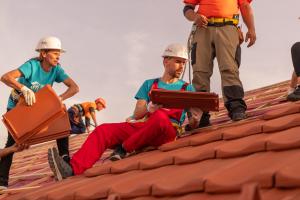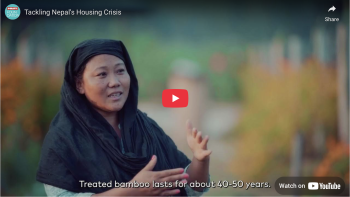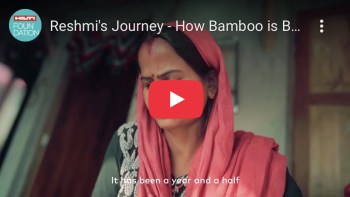From Empty Spaces to Homes: Abandoned Tenement in Piaseczno Gets a New Lease of Life
How Volunteerism is transforming housing and communities in Africa
On 12 August, volunteer sector experts from across Africa gathered in Addis Ababa, Ethiopia, to mark International Youth Day by celebrating the transformative power of volunteering. For the first time, the African Union recognized the contributions of volunteers across the continent by launching the State of Volunteerism in Africa Report.
The report positions volunteerism as a vital driver of Africa’s development aspirations, particularly in advancing Agenda 2063. It highlights that Africa contributes an estimated 5.9 million hours of voluntary service every month—valued at over USD 353.5 million annually.
On 12 August, volunteer sector experts from across Africa gathered in Addis Ababa, Ethiopia, to mark International Youth Day by celebrating the transformative power of volunteering. For the first time, the African Union recognized the contributions of volunteers across the continent by launching the State of Volunteerism in Africa Report.
The report positions volunteerism as a vital driver of Africa’s development aspirations, particularly in advancing Agenda 2063. It highlights that Africa contributes an estimated 5.9 million hours of voluntary service every month—valued at over USD 353.5 million annually. These numbers represent the unstoppable force of people determined to build a better future for their communities, and the organizations that create opportunities for them to contribute.
At Habitat for Humanity, we witness this power everyday. In the last financial year, nearly 900,000 volunteers partnered with us across 70 countries. Behind these numbers lies the commitment of young people, communities, corporate partners, and individuals determined to improve housing and, by extension, human dignity.
We believe housing achieved through volunteering is not just about shelter—it is a pillar of development. Habitat for Humanity through the Home Equals Campaign documents the connections between housing and broader priorities such as health, education, climate resilience, gender, and youth development, while creating opportunities for volunteers to learn, advocate, and build alongside us.
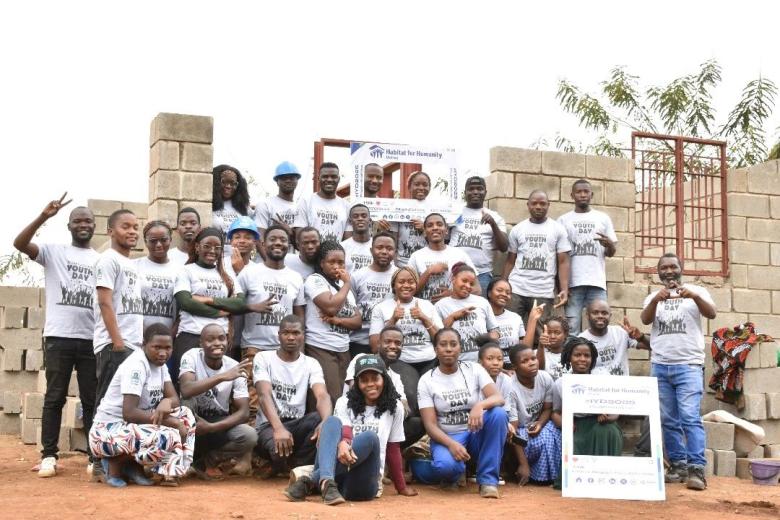
Group of volunteers in Malawi who participated in a build in commemoration of International Youth Day 2025
How volunteerism shapes housing and development
i) Communal culture shapes collective futures
African traditions of collective action—such as Ubuntu, Harambee, and Ujamaa—show that volunteerism is deeply embedded in our societies. Honouring these legacies means building not just homes but sustainable communities.
During preparations for the annual Mandela Build in South Africa, Percy, chairman of Esihlahleni Sentuthuko a Community-Based Organisation (CBO) in Orange Farm, spoke of the impact of improved housing on local families. His determination was an act of care and a commitment to securing a better future despite the challenges faced by the CBO. To date, we have partnered with 1,000 households in Orange Farm towards better housing conditions through this long-standing collaboration.
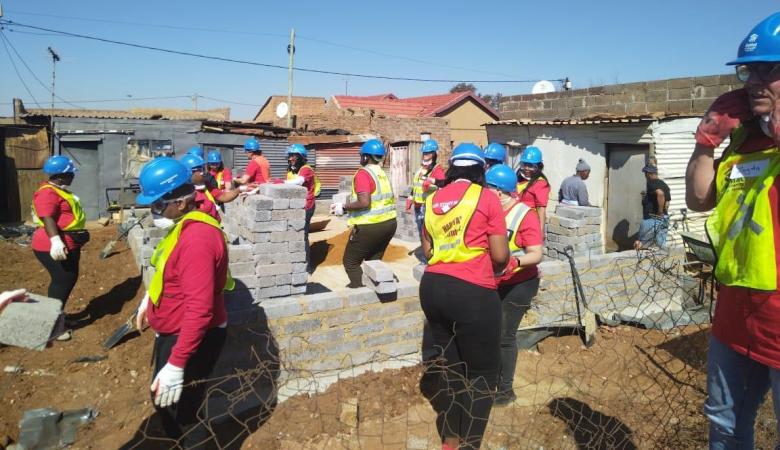
Volunteers hard at work during this year’s Nelson Mandela Build. Held in July 2025, the build mobilized approximately 750 volunteer shifts, to build 10 homes across 3 provinces in South Africa.
ii) Citizen action shapes communities
Housing is central to SDG 11 (Sustainable Cities and Communities) and closely linked with SDGs 1 (No Poverty), 3 (Health), 6 (Sanitation), and 13 (Climate Action). Volunteerism connects citizens directly to these priorities, turning motivation for change into tangible results.
In Zambia, volunteers in Sports for Development initiatives engage young people in activities that instill values and highlight the importance of decent housing. These lessons ripple into households, where families begin to see connections between housing, health, and opportunity.

29-year-old John, a resident of Kabwe’s Makululu settlement in Zambia is inspiring change in his community through sports and housing advocacy. In 2018, he partnered with Habitat for Humanity to construct his home, an experience that sparked his mission to uplift others. Inspired by his passion for football, John founded Habitat for Humanity FC, and later established DEW Girls Football Team, providing opportunities for young girls to thrive. Both teams use sports as a tool for youth empowerment and community transformation.
iii) Shared effort shapes social sustainability
When we volunteer to build houses, we build more than walls and roofs: we build communities, awareness, and accountability. Each effort prepares the next generation to see housing not just as a right but as a shared responsibility. Volunteerism nurtures this continuity, planting trees of social sustainability whose shade future generations will enjoy.
Our Strengthening Disaster Preparedness Program with UNDP Malawi shows how communities can proactively enhance resilience. In Blantyre, community volunteers have been empowered to engage local authorities and shape the future of their neighbourhoods beyond the project cycle.
In Ethiopia, young volunteers from Habitat Ethiopia’s network marked this year’s International Youth Day by planting 750 seedlings in Entoto Forest and leading dialogues on housing and the SDGs. They also engaged in a live visual arts competition where young artists portrayed the realities of youth and housing, alongside a “Write to Your Youth Minister” exercise that captured recommendations for government. Together, these activities combined environmental action, creative expression, and civic engagement; showing how volunteerism strengthens both community resilience and housing advocacy.
In Derrière Rail, an informal settlement in Abobo, Côte d’Ivoire, volunteer committees formed through our Informal Settlement Upgrading project are driving change beyond housing. By championing youth development and social inclusion, they are shifting perceptions and strengthening cohesion.
As H.E. Amb. Selma Malika Haddadi, Deputy Chairperson of the African Union Commission, emphasized during the report launch: championing volunteerism is a driving force for our shared journey toward the Africa We Want—and a sustainable housing future.


How Volunteerism is transforming housing and communities in Africa

Building inclusive urban futures: Highlights from LANDac 2025 Conference
In cities across the Global South, people are increasingly pushed to the margins by insecure land tenure, climate displacement, and exclusion from urban planning. At the 2025 LANDac International Conference, Habitat for Humanity joined global changemakers
In cities across the Global South, people are increasingly pushed to the margins by insecure land tenure, climate displacement, and exclusion from urban planning. At the 2025 LANDac International Conference, Habitat for Humanity joined global changemakers including grassroots leaders, and researchers to tackle one pressing question: How do we build cities that include everyone?
This year’s conference theme, “Land, Crisis and Resilience,” was particularly timely. We spotlighted grassroot innovations from Kenya, Zambia and Ethiopia – where participatory mapping, community radio, digital tools, and grassroots advocacy are unlocking tenure security and shaping inclusive urban planning processes for communities often overlooked in policy frameworks.
We shared strategies grounded in the lived experiences of informal settlement dwellers, youth, and women across Africa. A major takeaway was the reaffirmation that land tenure is central to climate resilience and urban equity. It underpins long-term planning, enables inclusive development, and shields communities from displacement.
In one session, Millicent Adhiambo (Habitat for Humanity Kenya) and Fischer Siabasimbi (Habitat for Humanity Zambia) reflected on the power of trusted local structures – from radio forums that spark dialogue on land rights in Zambia, to digital training that empowers informal settlement leaders in Kenya. These initiatives are reshaping land governance by shifting who participates – and how.
Eden Asrat (Habitat for Humanity Ethiopia) shared lessons and measurable progress from the Stand for Her Land Campaign, where legal literacy, advocacy, and coalition-building are helping advance women’s land rights and strengthening their role in climate adaptation
Moderated by Grace Ananda (Africa Office) and Paulene Santos (Asia-Pacific) and opened with a keynote from Mathabo Makuta (Africa Office), our sessions drew voices from Latin America, Asia-Pacific, and West Africa. Shared concerns - forced evictions, informality, and equitable urban transitions, reminding us that while our contexts differ, the structural challenges are often shared.
Organizations like IIED, Sierra Leone Urban Research Centre (SLURC), Huairou Commission, and ILC, challenged us to think deeper about local ownership, gender-responsive urban planning, and the importance of indigenous knowledge in shaping just land governance. These exchanges highlighted that people, not just policies or platforms, must remain at the center of land and housing solutions.
Carrying the conversation forward
LANDac 2025 reaffirmed our commitment to: Strengthening community advocacy ecosystems and grassroots tenure models in Africa; integrating climate migration into shelter programming in Asia Pacific, and elevating local leadership and lived experience in policy spaces—from local government dialogues to international platforms.
As urbanization accelerates and climate risks grow, informal settlements must be recognised as homes, communities, and engines of resilience. The lived realities of marginalized groups must shape how we approach land, housing, and urban development. Real change begins when we center the voices of those most affected.
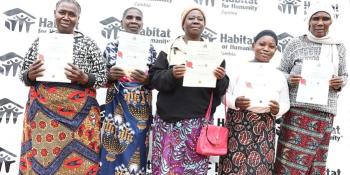
Building inclusive urban futures
Highlights from LANDac 2025 Conference
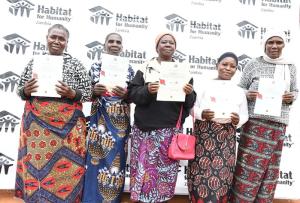
Housing at the heart of urban climate action: Highlights from the Intergovernmental Panel on Climate Change (IPCC) Special Report on Climate Change and Cities Workshop
Cities across the Global South are on the frontline of climate impacts, yet the needs and voices of communities in informal settlements are often overlooked in climate research, policy responses, and financing. This gap was a central theme at the recent IPCC (Intergovernmental Panel on Climate Change) Special Report on Climate Change and Cities (SRCities) workshop, held on the sidelines of the Africa Ministerial Conference on the Environment (AMCEN).
Cities across the Global South are on the frontline of climate impacts, yet the needs and voices of communities in informal settlements are often overlooked in climate research, policy responses, and financing. This gap was a central theme at the recent IPCC (Intergovernmental Panel on Climate Change) Special Report on Climate Change and Cities (SRCities) workshop, held on the sidelines of the Africa Ministerial Conference on the Environment (AMCEN).
Held at the UN-Habitat headquarters in Nairobi on 17–18 July, the workshop marked the first step in developing the IPCC’s first-ever report focused exclusively on cities — a milestone for elevating urban issues in global climate dialogue.
Making the invisible visible
Habitat for Humanity’s delegation; Grace Ananda (Africa Policy and Advocacy Manager) and Rebecca Ochong (Director Government Relations and International Advocacy, HQ) – brought forward a key message: housing must be central to climate adaptation planning.
Drawing from our growing body of evidence, they presented three case studies from recent reports:
- Slum Blind: Climate Migration and Informal Settlements
- Net-Zero Homes: Circular Solutions to the Housing Crisis
- Climate Adaptation Through Housing in Informal Settlements
Each showed how housing intersects with climate resilience; from secure land tenure and community governance to circular construction and inclusive financing.
Rebecca’s session, “Net-Zero Homes and Adaptation Pathways through Housing,” spotlighted innovative models that link circular economy principles with locally adapted shelter solutions. Grace’s presentation, “Slum Blind: Climate Migration and Housing,” challenged the invisibility of displaced populations in mainstream climate frameworks, calling for deeper attention to informal settlements and internal climate migrants.
Their contributions fed into a broader set of reflections that surfaced throughout the workshop. Participants from organizations such as the Global Covenant of Mayors, World Resources Institute, UN-Habitat, SDI, Government of Kenya, research institutions echoed the call to ground climate solutions in lived realities; emphasizing the importance of co-creating knowledge with communities rather than treating them as passive recipients. Practitioner insights, grey literature, and diverse forms of urban experience, particularly from historically underrepresented regions, were recognized as essential to shaping meaningful, inclusive climate responses.
One compelling insight came from discussions on Ukraine’s post-conflict urban recovery. UN-Habitat shared how they are supporting municipalities like Borodianka Hromada to map war-related damage and guide rebuilding efforts that go beyond physical infrastructure. A central focus has been aligning recovery with long-term climate goals, including energy-efficient housing and net-zero development. The upcoming hybrid conference “Rebuilding a Place to Call Home” in October 2024 will bring together local leaders, international partners, and practitioners to explore how housing can anchor both recovery and resilience. The Ukraine example underscored that even in the most fragile contexts, housing is not only a humanitarian need — it is a strategic entry point for sustainable urban transformation.
In an interview with UN-Habitat’s communications team during the event, Rebecca emphasized the urgent need to mainstream housing in climate policy and increase climate finance for informal settlements. These perspectives and the lived examples they were grounded on, resonated strongly with participants, including IPCC leadership and fellow urban researchers.
Carrying the conversation forward
Beyond the plenary sessions, we engaged in bilateral meetings with the Global Covenant of Mayors, the Kenya Government’s BCRUP (Building Climate Resilience for the Urban Poor under the UCLGA) representative, and the World Resources Institute, exploring alignment around COP30 and collaboration for the Africa Climate Summit which will be held in Addis Ababa this September 2025.
Next, the IPCC authors will develop a framework to collect case studies that will inform the 2027 SRCities report, the 2028 Global Stocktake, and guide the development of new adaptation indicators and methodologies in 2029. These milestones offer a critical opportunity to ensure that housing, land, and informal settlements are not peripheral, but central, to how climate resilience is defined and financed.
As urbanization accelerates and climate risks grow, our mission is clear: to ensure that the people most affected by these transitions are not excluded from the solutions. We’ll continue to champion housing as a frontline climate intervention, and advocate for a future where cities are not only resilient, but just.
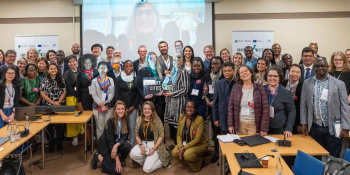
Housing at the heart of urban climate action
Highlights from the Intergovernmental Panel on Climate Change (IPCC) Special Report on Climate Change and Cities Workshop
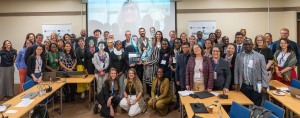
Habitat for Humanity and Employee Foundation of the VKR Group Build on Shared Values in Poland
Can Housing Justice Advance Reparations for Africans and People of African Descent? Reflections from the 38th African Union Summit | Addis Ababa, Ethiopia
At this year’s 38th African Union Summit in Addis Ababa, leaders rallied around a bold and timely theme: “Justice for Africans and People of African Descent Through Reparations.” While reparations are often viewed through a financial lens, the summit emphasized the need for deeper structural change - addressing inequalities that continue to hold communities back.
One of those inequalities? Housing.
At this year’s 38th African Union Summit in Addis Ababa, leaders rallied around a bold and timely theme: “Justice for Africans and People of African Descent Through Reparations.” While reparations are often viewed through a financial lens, the summit emphasized the need for deeper structural change - addressing inequalities that continue to hold communities back.
One of those inequalities? Housing.
According to Akinwumi Adesina, president of the African Development Bank (AfDB), over 56 million housing units are needed on the continent. More than 90% of that need is in the affordable housing bracket, requiring an estimated $1.4 trillion in investment.
Several factors drive this housing deficit, including rapid urbanization, population growth, land tenure insecurity and economic challenges. The scale of the need across countries is sobering:
- Nigeria has a housing deficit of 22 million units
- Tanzania and the Democratic Republic of Congo each report shortages of 3 million units
- Kenya, South Africa, and Madagascar face deficits exceeding 2 million units
- In Ethiopia, more than 70% of the housing stock requires complete replacement. The huge housing deficit has led to the growth of informal settlements, overcrowding, and substandard living conditions, especially in urban centers.
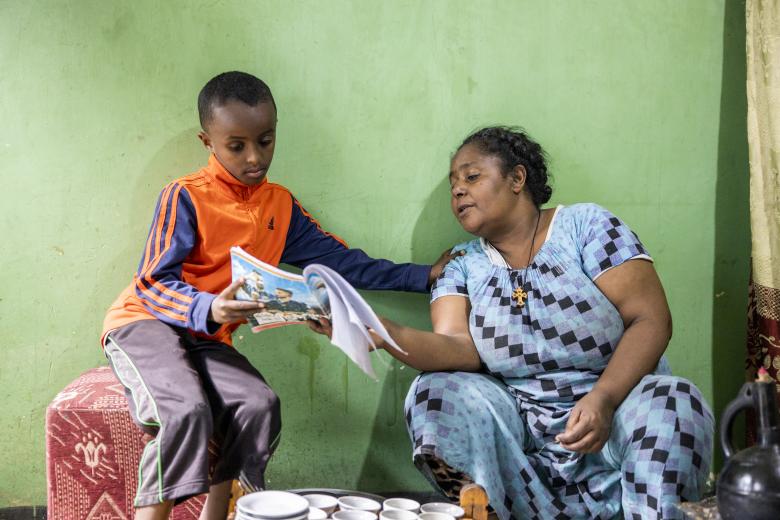
Linking reparative justice to the HomeEquals campaign work in Africa
“A man without a home is like a bird without a nest,” goes an African proverb. Homes are more than four walls, they are where dignity, identity, and opportunity begin. When people live in inadequate housing, they are more vulnerable to poverty, exclusion, and the impacts of climate change.
Housing justice is indeed social justice. That’s why we’re working across Africa to create housing solutions that are decent, inclusive, and sustainable – solutions that speak directly to the aspirations of the AU Agenda 2063 and the call for reparative justice.
Across our work in Africa, our advocacy through our Home Equals Campaign echoes the reparative justice of this agenda. The Home Equals Campaign Research aligns with this vision by advocating for policies that:
Prioritize land and housing rights for historically marginalized communities.
Promote inclusive urban development that prevents forced evictions and displacement.
Encourage investment in affordable housing to reduce economic disparities.
For instance, by facilitating access to credit in Kenya, Habitat for Humanity is helping address historical barriers to housing finance for low-income households and marginalized groups empowering them to have safe and affordable homes.
Similarly, in South Africa, Habitat for Humanity has engaged over 6,000 citizens in building and advocating for decent shelter, directly impacting communities that continue to grapple with the legacy of apartheid and other historical injustices. And in Ethiopia, our work to build climate-resilient housing in informal settlements speaks to the urgent need for cities that protect, not exclude.
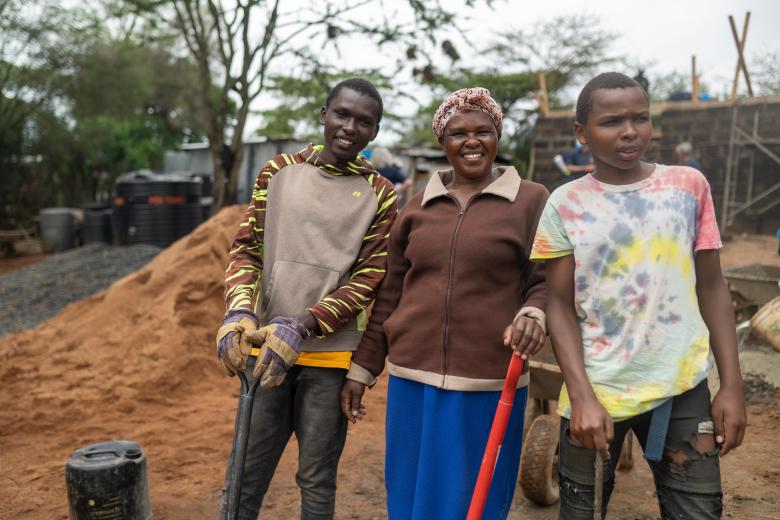
Key takeaways from the summit: aligning commitments with housing justice
During the summit, leaders emphasized the need for justice that addresses the continent’s pressing challenges, including the housing crisis, climate change, and economic disparities. They also called for solutions that empower Africa’s youth and secures their future.
Several commitments made at the Summit echoed Habitat for Humanity’s mission to advance housing, land security, and inclusive development across Africa:
- The AU’s Ten-Year Strategy for Agri-Food Systems transformation highlights the need for secure land rights aligns with Habitat’s focus on equitable land access, recognizing that secure land tenure is foundational not only for agriculture but also for decent, resilient housing and long-term community development.
- UN Secretary-General’s call for peace, justice, and infrastructure investment António Guterres called for more investment in resilient cities and infrastructure, equitable energy access and climate action echoes Habitat for Humanity’s focus on climate-resilient housing.
- Outgoing AU Chair H.E. Moussa Faki Mahamat emphasized youth empowerment and community resilience, reinforcing Habitat for Humanity’s commitment to people-led housing solutions
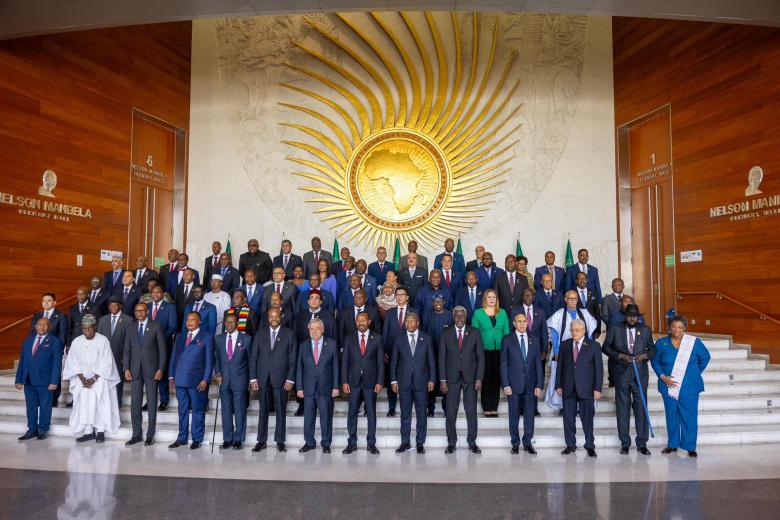
African presidents pose for a photo at the 38th AU Summit
Call to action: Habitat for Humanity’s recommendations for the African Union
Based on these commitments, we continue to call on governments, civil society and development partners to prioritize housing, elevating informal settlements, strengthening multi-sector partnerships and promoting climate resilient housing.
While the AU has made great strides through the New Urban Agenda, we urge the AU and its new leadership under H.E Mahmoud Ali Youssouf to continue championing policies that:
- Secure land and housing rights for marginalized communities through inclusive policy frameworks.
- Integrate sustainable housing into urban planning to protect vulnerable populations.
- Mobilize public and private financing to help close the continent’s $1.4 trillion housing gap.
- Strengthen collaboration among member states and regional blocs like Economic Community of West African States (ECOWAS), the East African Community (EAC), and the Southern African Development Community (SADC) to address cross-border challenges related to housing insecurity, climate resilience, and sustainable development.
Habitat for Humanity was proud to participate in the AU Summit alongside partners like United Cities and Local Governments of Africa (UCLGA), United Nations Economic Commission for Africa (UNECA), African Green Climate Finances National Designated Authorities Network (AfDAN) among others. Together, let’s ensure that this conversation leads to action, not just in policies, but in real homes, real communities, and real futures for the people of Africa and its global diaspora.
(Respectively) Policy and Advocacy Manager HFH Ethiopia, National Director HFH Ethiopia and AU representative, Africa Policy and Advocacy Manager, Africa Advocacy Assistant
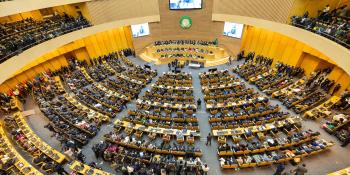
Can Housing Justice Advance Reparations for Africans and People of African Descent?
Reflections from the 38th African Union Summit | Addis Ababa, Ethiopia
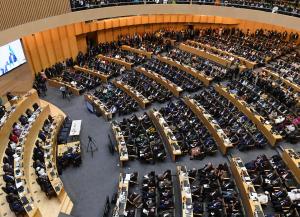
Bringing Housing to the Spotlight: Unlocking the Potential of Housing Education Content
Housing is more than bricks and mortar – Home equals dignity, safety and opportunity. Yet housing education content remains underrepresented and relatively new to mainstream media. To change that, Habitat for Humanity’s Terwilliger Centre for Innovation in Shelter (TCIS) recently hosted a dynamic housing content pitching roundtable. The event brought together diverse stakeholders from media, government, NGOs, private and public sectors to explore how media-based interventions can bridge critical information and knowledge gaps within the housing ecosystem.
June 2025, Nairobi
Housing is more than bricks and mortar – Home equals dignity, safety and opportunity. Yet housing education content remains underrepresented and relatively new to mainstream media. To change that, Habitat for Humanity’s Terwilliger Centre for Innovation in Shelter (TCIS) recently hosted a dynamic housing content pitching roundtable. The event brought together diverse stakeholders from media, government, NGOs, private and public sectors to explore how media-based interventions can bridge critical information and knowledge gaps within the housing ecosystem.
Why it matters
Millions face housing challenges, but many lack access to practical relatable information. The event aimed to influence cross-sector investment and collaboration between housing and the creative industries – turning complex housing issues into stories that inspire action and drive change. We see this as one of the paths to enabling the environment for the sustainable production and dissemination of housing education content.
The Pitch: Turning Ideas into Impact
Two exciting content proposals were showcased:
- Talanta Institute production house – Proposing a drama series-inspired by real-life experiences on housing struggles in communities
- Mediae Company – Proposing a home improvement series using a makeover format helping low-income families to upgrade their homes.
Both concepts received thoughtful feedback and strong support. Stakeholders commended their creativity and potential to translate complex housing topics into accessible, compelling narratives that turn sector knowledge into household action.
What Next?
While investment from the housing sector in media-based education programming still needs further convincing, the momentum is building. Stakeholders are recognizing the power of storytelling to spark awareness, drive behavior change and attract cross sector collaboration.
The roundtable is just the beginning. Together with partners, HFHI TCIS is paving the way for a future where housing education is not only accessible, but compelling.



Bringing Housing to the Spotlight: Unlocking the Potential of Housing Education Content

Building Stability: Reshmi’s Journey and Nepal’s Bamboo Revolution
Nepal’s traditional bamboo homes have long left families vulnerable to floods, storms, and uncertainty—but a quiet transformation is underway. Through a partnership between Habitat for Humanity and the Hilti Foundation, Cement Bamboo Frame Technology is turning bamboo into a durable, disaster-resilient solution that’s reshaping communities. Reshmi’s story shows how one innovative home can unlock safety, opportunity, and lasting change.
Disclaimer - An article written by Hilti Foundation. All opinions in this article reflect the views of the author(s), not Habitat for Humanity International. June 2025
This article is the result of a partnership between Habitat for Humanity Europe and Middle East and the Hilti Foundation, a European donor that has been supporting transformative projects worldwide since 2012.
Through this collaboration, more than 5 million people have been helped to build or improve their homes by using innovative, eco-friendly, and disaster-resilient shelter technologies.
The Hilti Foundation’s partnership with Habitat for Humanity is grounded in five key pillars:
1. building sustainable and innovative homes using Cement Bamboo Frame Technology,
2. driving innovation and expanding access to affordable housing solutions,
3. facilitating multisector partnerships to address systemic housing challenges,
4. increasing financing opportunities for families to ensure safe and affordable housing,
5. and engaging Hilti volunteers and tools to enhance the speed and quality of home construction.
This article highlights one such transformative initiative in Nepal, where sustainable housing solutions are improving lives and building futures.
Reshmi’s Journey and Nepal’s Bamboo Revolution
The monsoon rains came without mercy, flooding the floors of Reshmi’s bamboo hut. The fragile roof sagged under the downpour, water dripping onto the mud walls as she and her two children huddled in a corner. The jungle loomed just beyond their door, and with it came a constant threat as snakes, insects, and scorpions often found their way inside. Fear was as much a part of life as the extreme rains and winds.
This was not just her reality; it was the reality of millions of families across Nepal’s rural plains, where traditional bamboo homes barely stood up to nature’s relentless forces. For Reshmi, the cycle was exhausting and unending: repairing her home at least once or twice a year, only to see it deteriorate again. Resources that could have gone to her children’s education or medical care were swallowed by the constant need for repairs.
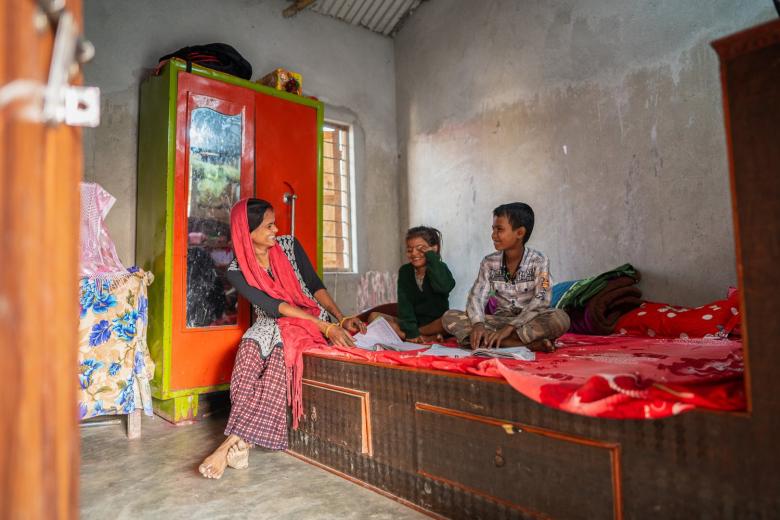
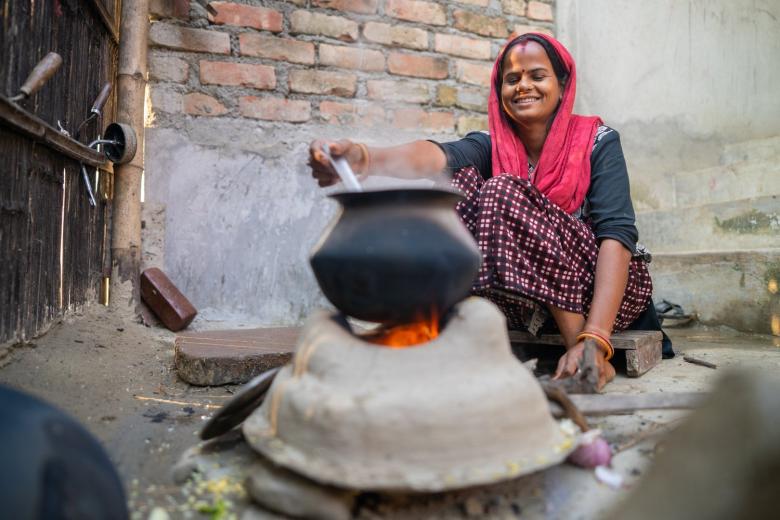
Nepal’s Housing Crisis
Reshmi’s struggles are echoed across Nepal, where nearly half the population lives in substandard housing. Traditional bamboo homes, though affordable and culturally significant, are fragile and short-lived. Withstanding Nepal’s frequent natural disasters—monsoons, landslides, and earthquakes—was nearly impossible for these structures. The 2015 earthquake destroyed over 600,000 homes, leaving families like Reshmi’s in an unbreakable cycle of poverty and rebuilding on informal land, in constant fear of eviction.
In Nepal’s Terai region, where bamboo is abundant, the material has long been a cornerstone of rural life. It is used for everything from cradles, through houses, to funeral biers. However, untreated bamboo, susceptible to pests, moisture, and decay, offers little protection against the elements. This reputation as a “temporary material” limits its potential, leaving communities vulnerable year after year.
A Turning Point: Introducing Cement Bamboo Frame Technology
Change began when Reshmi’s community was introduced to a housing program utilizing Cement Bamboo Frame Technology (CBFT), an innovation spearheaded by the Hilti Foundation and the BASE Bahay Foundation. CBFT transforms bamboo into a durable, disaster-resilient material. By treating bamboo to resist pests, moisture, and rot and reinforcing it with modern building practices, CBFT homes could withstand earthquakes of magnitude 7-8 and typhoon winds of up to 300 km/h.
Reshmi embraced the program with hope. She helped with the construction of her new house and carried gravel, sand, and soil to the site. She even did the electrical work. “All of this makes me very happy,” she says, reflecting on her involvement.
Reshmi’s Transformation
The finished house stood sturdy and secure, with three rooms: a kitchen and two bedrooms. For the first time, Reshmi no longer feared the rains. The flooding, the fear of scorpions and snakes, and the endless repairs were behind her. “Cleaning is much easier now,” she says.
Freed from the cycle of repairing and maintaining her home, Reshmi opened a general store and a tailor shop. These businesses thrived, and her income now supports her family’s needs, including sending her children to boarding school.
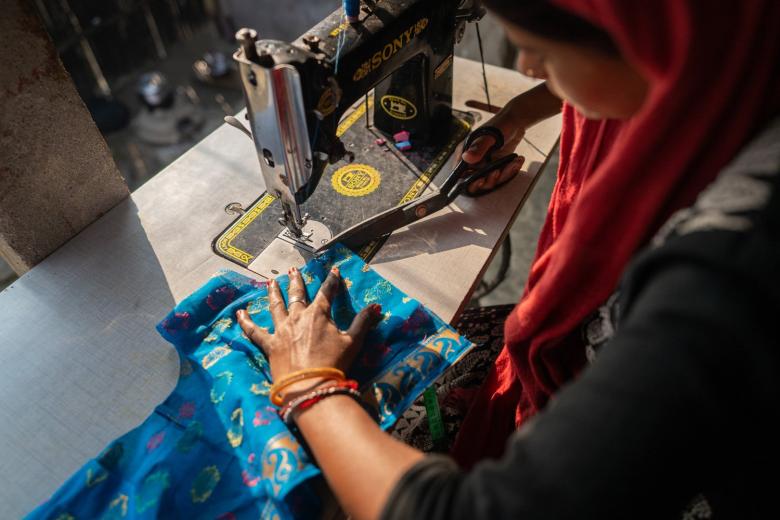
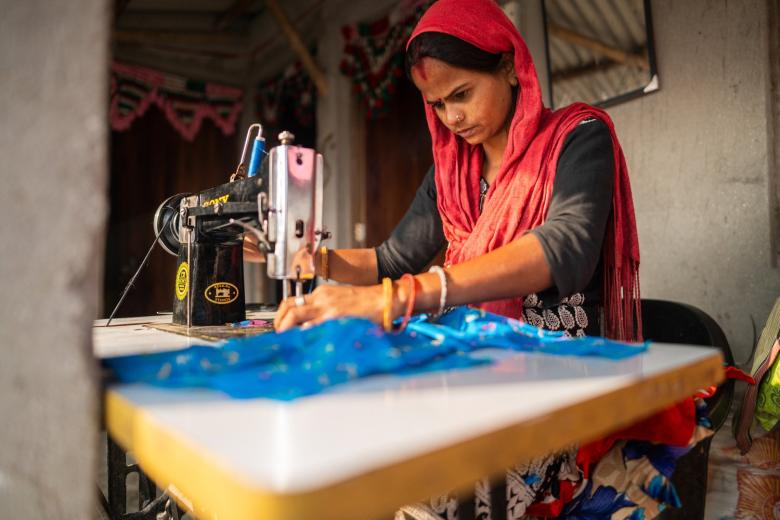
Scaling the Solution
Reshmi’s story is part of a larger movement to transform bamboo from a symbol of impermanence into a cornerstone of resilient housing. The Hilti Foundation, in partnership with Habitat for Humanity, has built over 850 CBFT homes in Nepal, providing stability to families across the country. Beyond individual homes, the initiative is creating a bamboo-based economy, with treatment facilities, nurseries for quality bamboo seedlings, and training programs for local builders.
Through collaboration with Nepal’s Ministry of Urban Development, the country’s first national bamboo construction guidelines have been developed, paving the way for bamboo to be included in affordable housing programs. Bamboo has the potential to create an entire industry, and transform housing in Nepal and beyond. Today, Reshmi stands outside her CBFT home, confident and hopeful. Her children study without interruption, and her businesses continue to grow.
“Once the new house was built, we were able to earn a living. It has given us peace,” as she put it.
As Nepal scales its bamboo construction efforts, stories like Reshmi’s reflect a profound shift. CBFT is not just about building homes—it’s about building futures. Families once trapped in cycles of poverty and rebuilding now have the stability to dream bigger, invest in their communities, and create lasting change.
For Reshmi and countless others, bamboo is no longer a fragile material.
It’s the foundation of a better life.
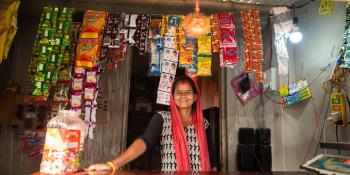
Building Stability: Reshmi’s Journey and Nepal’s Bamboo Revolution
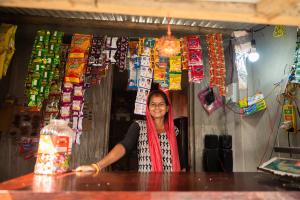
Building Homes, Building Hope: wienerberger and Habitat for Humanity on a shared mission
Discover how wienerberger and Habitat for Humanity are partnering to build sustainable, affordable homes across Europe and beyond–empowering communities, improving lives, and shaping a better future through innovation and a shared purpose.
Disclaimer - An article written by wienerberger. All opinions in this article reflect the views of the author(s), not Habitat for Humanity International. June 2025
In the small village Cumpăna in Romania, the Cozma family was able to move out of their rental apartment which had mold and no working heating. Thanks to the powerful partnership between wienerberger and Habitat for Humanity, they own one of the houses built in Cumpăna and are able to offer their own three children better opportunities for the future.
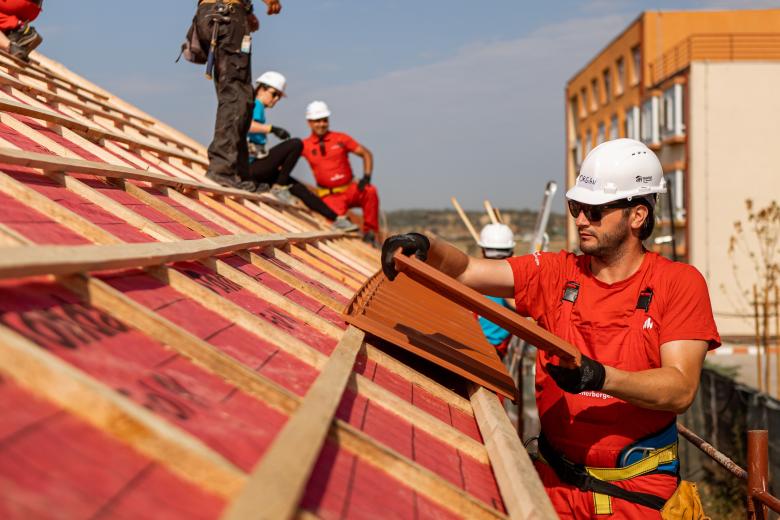
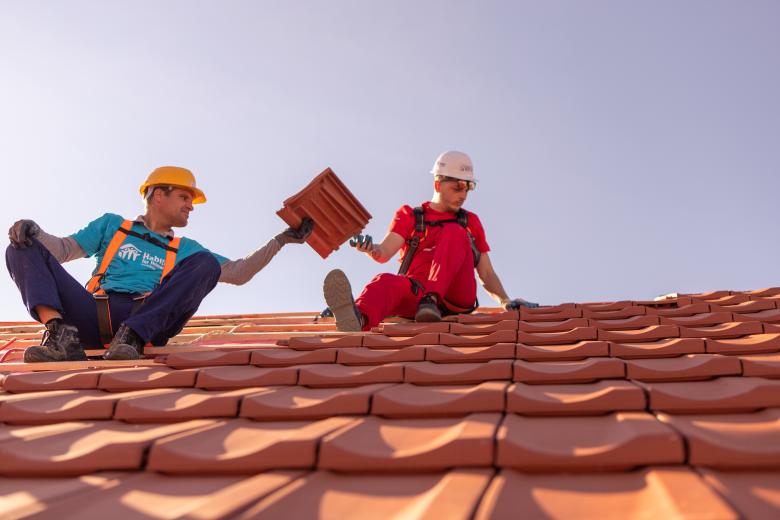
A partnership rooted in purpose Since 2012, wienerberger, a leading international provider of innovative and ecological solutions for the entire building envelope, has partnered with Habitat for Humanity to create homes for people in need across Europe. This collaboration goes beyond bricks and tiles. It is about building resilient communities, restoring dignity, and creating a better future.
This partnership has already supported over 6,300 people, focusing on the most vulnerable and their urgent need for decent housing. In sum, over 600 housing units have been created so far by wienerberger and Habitat for Humanity International working together. The projects went beyond housing construction, encompassing the development and renovation of social facilities such as the construction of centers for people with disabilities or the renovation of schools. In the next three years, wienerberger will focus on projects in Hungary, Poland, Romania, Slovakia, the United Kingdom, and the United States.
In 2025, wienerberger reaffirmed this commitment by extending its partnership with Habitat for Humanity International. This marks the fifth renewal of a three- year collaboration, extending the relationship into 2025–2027.
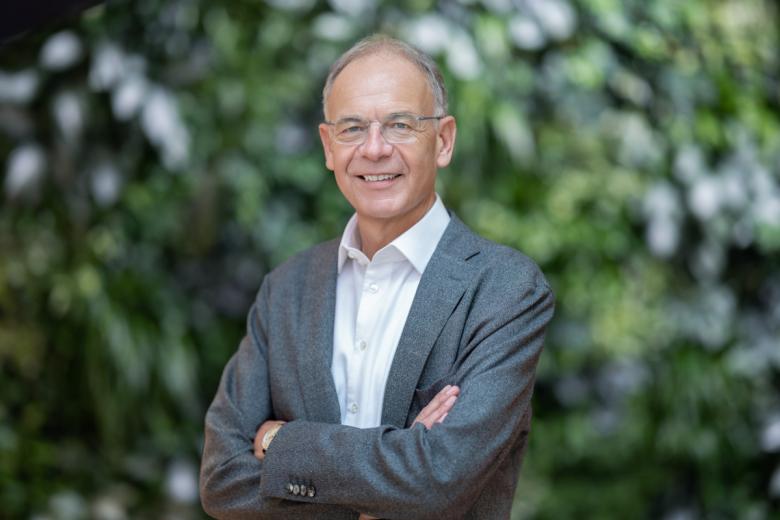
“We believe that everyone deserves a safe place to live. Our partnership with Habitat for Humanity reflects our core values of sustainability, innovation, and social impact.” Heimo Scheuch, CEO of wienerberger
From building materials to building lives
wienerberger supports Habitat’s mission by providing high-quality, energy- efficient building materials from clay blocks to roof tiles and piping solutions. These materials help Habitat projects achieve long-term durability and energy performance, particularly in areas affected by extreme weather or economic hardship.
The support extends beyond donations. wienerberger employees regularly volunteer on-site, working alongside future homeowners and Habitat teams. These shared experiences create lasting bonds and foster a spirit of community and cooperation.
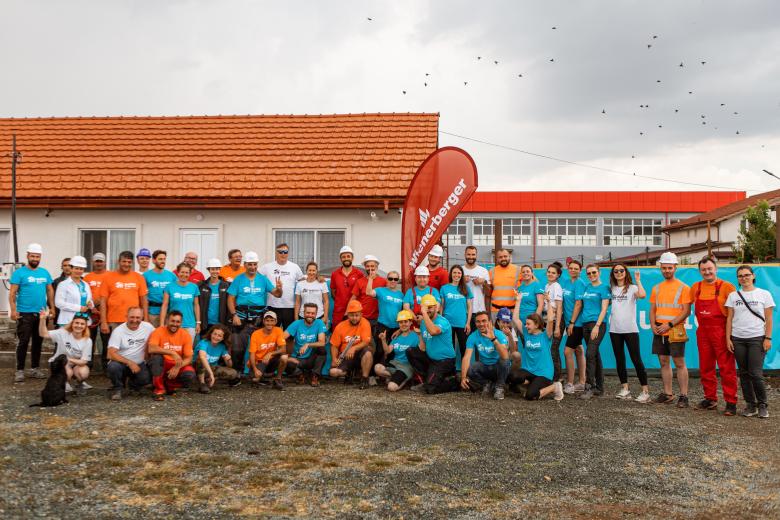
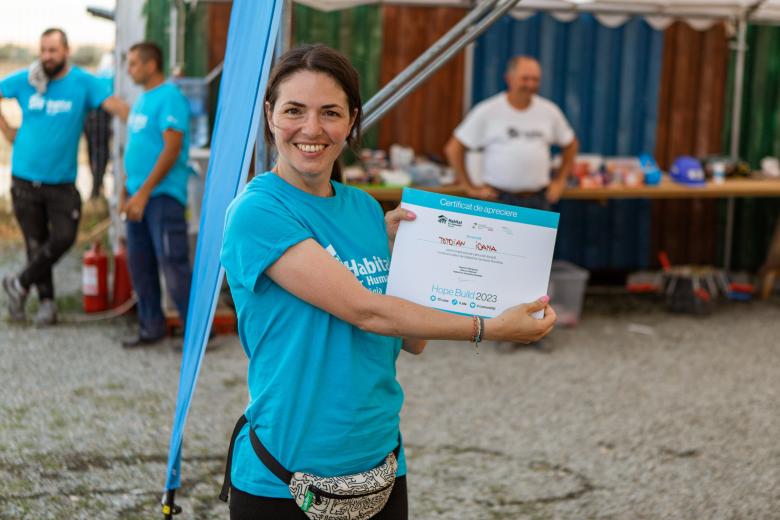
Shared values, shared impact
wienerberger and Habitat for Humanity are united by a deep commitment to sustainable development. Together, they champion climate-resilient building practices, promote affordable construction, and invest in local communities. This partnership aligns closely with the UN Sustainable Development Goals, particularly Goal 11: Sustainable Cities and Communities. Whether it’s helping families in rural areas or addressing urban housing shortages, the collaboration brings practical, scalable solutions to where they’re needed most.

“It’s not just about housing, it’s about empowerment. Through our partnership with wienerberger, we’re able to provide families with homes that are safe, healthy, and sustainable,” says Rick Hathaway, former Vice President for Europe and the Middle East at Habitat for Humanity International.
Housing – a crucial social challenge around the world
Safe homes are the prerequisite for healthy living conditions and new opportunities. As a leading company in the buildings sector, wienerberger bears a special responsibility in this regard. That is why wienerberger continues to support Habitat for Humanity International with product donations and innovative, resource-saving construction solutions.
Improving lives and building brighter futures as part of wienerberger’s strategy
The construction of housing for people in need is part of wienerberger’s ESG targets, as determined by its sustainability strategy. These goals are updated every three years raising environmental benchmarks further and expanding social targets. Read more about the wienerberger’s sustainability strategy in wienerberger’s Annual Report.
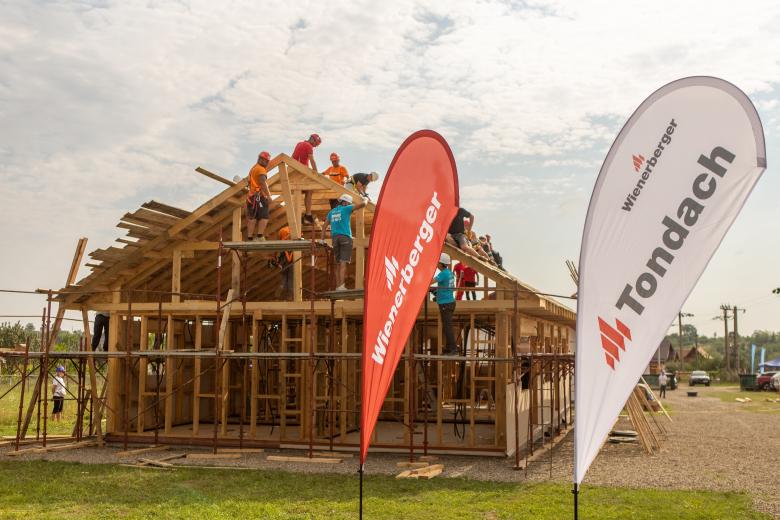
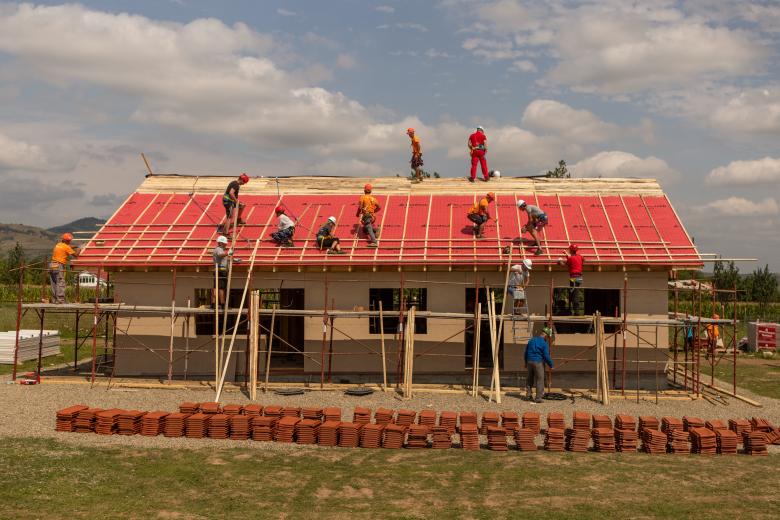
Looking ahead: building the future together
With growing challenges, like affordability and climate change, the need for sustainable housing solutions has never been greater. Together, wienerberger and Habitat for Humanity are committed to continuing their impact – improving lives, strengthening communities, and building brighter futures for generations to come.
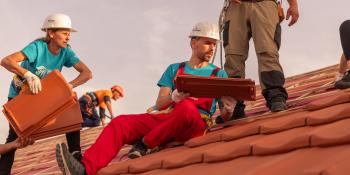
Building Homes, Building Hope: wienerberger and Habitat for Humanity on a shared mission
